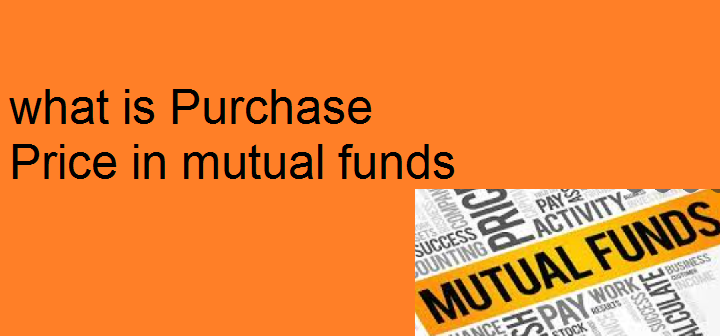What is Purchase Price in mutual funds?

The Purchase Price refers to the headline amount of the transaction. It is the gross value of the business. In some cases, the Purchase Price may be inflated by the buyer’s working capital, but it may also include any debt. Once the debt is deducted, the equity value of the company is calculated. A seller should know how much cash is available at closing in order to determine the right price. Often, the Seller should ask the Buyer to provide a forecast of cash flow after closing.
Purchase Price in mutual funds:
The Purchase Price is the price an investor pays for an investment. Once the investor sells the investment, it becomes the cost basis for calculating his or her gain. The Purchase Price takes into account the commissions paid to the broker, as well as any sales charges. In addition, the Buy Price is a good way to determine if a stock has gained or lost money. It also helps determine how much capital gains a company can claim on tax returns.
The Purchase Price is the price an investor paid to buy the investment. It becomes the basis for determining a gain when the investment is sold. The Purchase Prices include the costs of commissions, sales charges, and fees. If an investor buys more than one security, he or she will use the weighted average cost for calculation. Then, the Buy Price will be the basis for the investor’s capital gains. This purchase price can be high or low depending on the conditions of the market and the company’s earnings.
The Buy Price is the price at which an investor purchases an investment. When the investor sells the investment, the Purchase Price will be the cost basis for computing the gain or loss. This includes commissions and sales charges. If the investor purchased several securities with the same price, the Buy Price will be weighted average cost. This is the value used for capital gains tax purposes. If an investor buys more than one security, the Buy Price will be lower than the Sell-Price.
Purchase Price in mutual funds:
The Buy Price is the price that an investor paid for an investment. It will be the basis for calculating the gains or losses when the investor sells the investment. If the investment is worth more than the purchase price, then it will have a higher buy price. However, if the investor sells the asset for a lower price, it will have a lower value. It will be a capital loss. So, the purchase price is the best way to calculate a capital gain.
The Buy Price is the price an investor paid for the investment. This becomes the cost basis for calculating the gain or loss on an investment when the investor sells it. The Buy Price also includes any sales charges or commissions that the investor paid. A weighted average cost is used when multiple purchases of the same security were made. This way, the seller will be able to compare the different prices for the same asset. Once the buyer sells the investment, the purchase price will be higher than the selling price.
The Buy Price is the price that an investor paid for an investment. It is the basis of the gain or loss when the investor sells the investment. It includes any commissions, sales charges, and the weighted average cost. For example, an investor may invest Rs. 10,000 in the Investment Company and receive 1000 units. The exit load is the amount the investor will pay if they sell the investment before the investor has the opportunity to redeem the money.
Purchase Price in mutual funds:
The Purchase Price is the price the investor paid for the investment. The purchase price includes any sales charges or commissions that the investor paid to purchase the investment. If the investor purchased the same security more than once, the Buy Price is a weighted average of the costs of the purchases. It is the price that the investor paid for the investment. It is also the basis for the calculating the gain or loss on the investment. This is important because the buy and sell prices can fluctuate depending on the market and the business cycle.
The Buy Price can be used to calculate the gain or loss of a stock. A stock’s purchase price includes the cost of the investment and the commissions and sales charges that were paid by the seller. For tax purposes, the Purchase Price is equal to the cost of the investment. When an investment is sold, the buyer pays the seller’s price plus the amount of the commissions and sales charges. The seller then reinvests the funds’ NAV.




